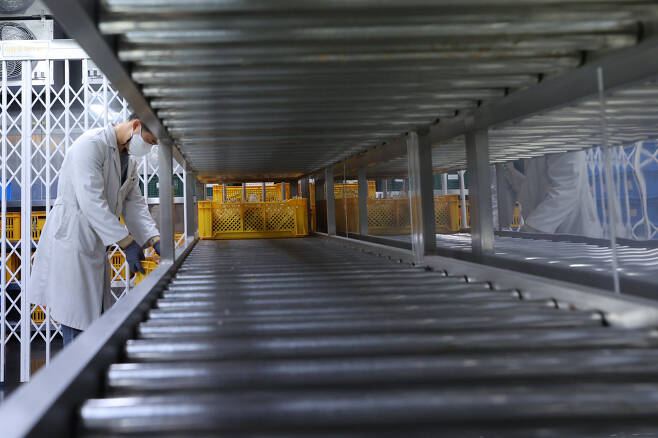Blood reserves' alert-level goes back to normal
이 글자크기로 변경됩니다.
(예시) 가장 빠른 뉴스가 있고 다양한 정보, 쌍방향 소통이 숨쉬는 다음뉴스를 만나보세요. 다음뉴스는 국내외 주요이슈와 실시간 속보, 문화생활 및 다양한 분야의 뉴스를 입체적으로 전달하고 있습니다.

South Korea’s blood reserves, which had been in a sharp decline due to the lingering third COVID-19 wave, have begun to stabilize.
The Korean Red Cross’ National Blood Institute of Daejeon-Sejong-Chungnam, issued an alert over the shortage of blood reserves in mid-December.
However, the Institute announced that as of Thursday, the country had recovered to the average supply amount needed, maintaining a little over four days’ worth of blood reserves.
At the alert-stage of caution level, general surgery, except for emergency situations, can be delayed or canceled until the blood is secured. This would indicate the possibility of a nationwide medical disaster if the supply falls to less than two days’ worth of reserves.
The Korean Red Cross Blood Center explained that the crisis quickly came to an end, thanks to the dispatch of public emergency text alert systems, appealing for participation in blood donations late last year.
However, practitioners in the field said it was too early to be confident that a stable supply could be maintained, as blood donation indicators have declined heavily ever since the first appearance of the coronavirus that swept the country with fear.
After COVID-19 hit, the number of blood donations dropped 6.8 percent, resulting in 180,000 cases, compared to 2019. A total of 770 private and public organizations and companies canceled their yearly blood donation plans, which led to a 23.8 percent decrease, with a fall of 210,000 donation cases.
In response to this unprecedented situation, the nation’s blood centers have been working hard to encourage people to participate in donations, coming up with promotional measures such as gifts in cooperation with local governments and NGOs.
“Since December last year, I recognize the number of donors coming to our center still seems low, which I think is due to both the third wave of virus and the extreme winter cold,” a nurse working at the House of Blood Donations at Seoul Station Center told The Korea Herald. “I hope we can lend a hand to each other little by little to get through the crisis very soon, and I believe blood donation is one-way.”
By Kim Hae-yeon (hykim@heraldcorp.com)
<ⓒKoreaHerald(www.koreaherald.com)무단전재 및 재배포 금지>
Copyright © 코리아헤럴드. 무단전재 및 재배포 금지.